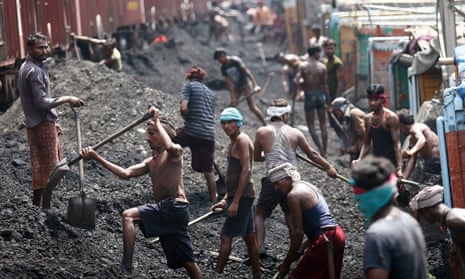The Indian government has urged the country’s supreme court to allow 46 illegally granted coal licenses to continue to operate.
The court is considering what action to take in the “Coalgate” corruption scandal. Last week, it found that every coal mining license the government allocated between 1993 and 2009, 218 in all, had been granted in an “illegal and arbitrary” manner and the government committee that oversaw the process was a regulatory vacuum in which cronyism thrived.
India’s attorney general Mukul Rohatgi told the nation’s highest court on Monday that the government was “not protecting anyone” and that if coal licenses were to be revoked, it was ready to re-auction them quickly in order to cause as little economic disruption as possible.
But he asked the justices to consider protecting leases that were currently producing coal, or close to producing, from “the guillotine of cancellation”. AFP reported Rohatgi telling the court: “Everything must not go in one brush. Don’t cancel everything: 46 allocations should be exempted. They must be saved because they are in absolute readiness.”
It is expected that some, possibly all, licenses granted during the period will be revoked and companies will have to bid for them in a transparent, law-abiding way.
The court must balance the need to take appropriately harsh action against endemic corruption – which government auditors estimated has cost the country $31bn (£19bn) – with the damage a wholesale shutdown of private mining operations could cause to the flagging coal sector. Coal supplies two-thirds of the country’s power and the sector is struggling with crippling shortages. Commentators have warned that a total revocation could set India’s economic growth back by up to a year.
Share prices of the companies involved in the scandal, which plunged last week after the court’s ruling on the illegality of the licenses, recovered slightly on Monday as investors saw the government advocate a more lenient approach.
The scandal is a major test of the anti-corruption resolve of Narendra Modi’s new government, which came to power pledging to extirpate cronyism, which it says was aggravated by the previous Congress government. Modi’s predecessor, Manmohan Singh, prevailed over the worst era of coal cronyism and was directly in charge of the coal ministry for part of his government’s time in office.
John Sauven, Greenpeace UK’s executive director said the government’s plea for special consideration was a disturbing volte-face. “The supreme court has deemed all coal block allocations were illegal and made it clear that it will not tolerate any further unaccountability or lack of transparency in the bidding process.”
The court has adjourned to consider the government’s plea and will deliver its verdict on 9 September.

Comments (…)
Sign in or create your Guardian account to join the discussion